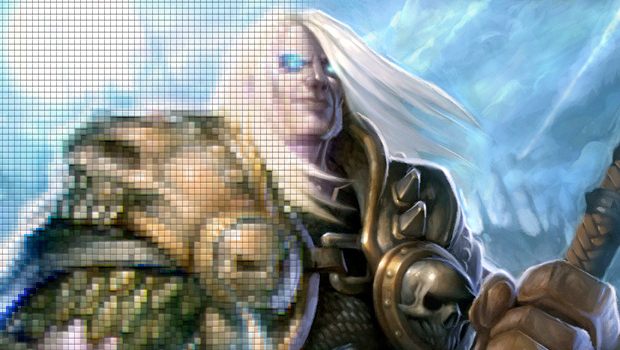
Leveling up
In a sense, every video game is a role-playing game. From Cloud to Mario, Pac-Man to the invisible force controlling those Tetris blocks, most every game inherently requires you, the player, to take up a certain role and move the action forward. But for the collection of games weve come to label RPGs, that simple facet of player interaction is taken to its extreme. Whether its engaging in combat, traveling massive worlds, meeting colorful casts of characters, or looting dead things, role-playing games usually give players a variety of ways to step into the shoes of a particular hero.
And since were feeling particularly nostalgic this time of year, weve decided to take a look back at the history of this beloved genre. Now, covering every aspect of RPGs history would be an overwhelming task--entire college courses have actually been taught on the subject--so were going to stick to the fundamentals. Thats still a ton of info, though, so cast a Focus spell on yourself and listen up.
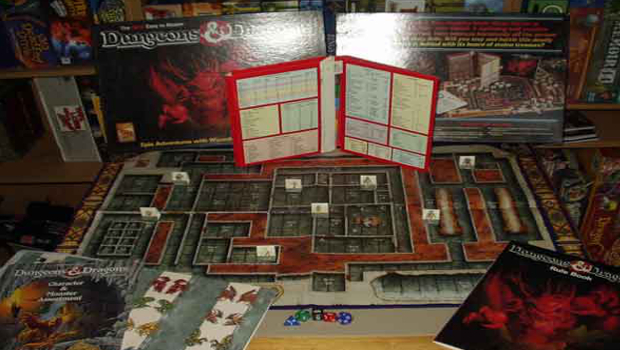
Dungeons and Dragons sets the stage and the table
The actual beginning of the concepts we recognize in most RPGs can be traced all the way back to the 18th century, with the advent of olden wargaming. Naturally, some may consider that to be a bit of a stretch, so the generally accepted inspiration for role-playing video games is none other than the role-playing tabletop game, Dungeons and Dragons.
Youve probably heard of it by now. Created in 1974 by the now-legendary Gary Gygax and Dave Arneson, D&D popularized a wealth of RPG conventions we now take for granted. Character classes, hit points, experience, turn-based combat, and plenty of other mechanics came to be synonymous with the tabletop classic, and it wasnt long before its popularity exploded. Many imitators arrived, but none could really match the combination of depth and accessibility D&D provided. Its influence wound up strong enough to affect many mediums, from fantasy novels to LARPing, but perhaps no industry was inspired more than that of video games.
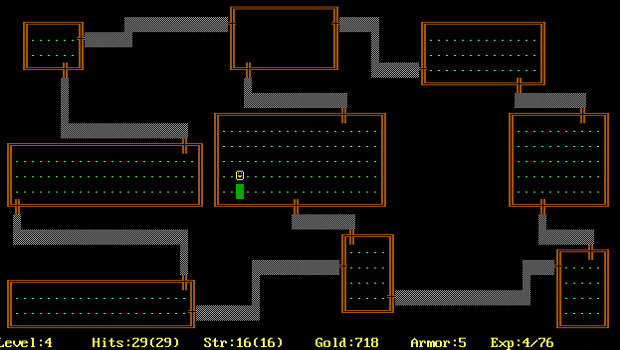
Rogue and others bring the tabletop to the mainframe
An enormous amount of other tabletop, interactive fiction, and card-based games--both important and insignificant--would come in the wake of the D&D craze, but, for our purposes, the first role-playing video games arrived in the mid-'70s. Titles like pedit5 and Dungeon were simple, text-based dungeon crawlers that took direct cues from D&D, only translated onto mainframe computers running now-ancient operating systems like Unix and PDP-10. They werent much to look at, sure, but the fact that they brought the role-playing style to computers is an undoubtedly significant achievement.
One of the more enduring games to emerge from this period was Rogue, which is generally seen as popularizing the dungeon crawler for the masses. It featured actual (and hideous) ASCII graphics and turn-based combat. It was also one of the first games to ever utilize procedurally generated content--making it endlessly replayable for role-playing enthusiasts all over. Its overhead hack-and-slash ways inspired a generation of future titles, from Diablo to Baldurs Gate. It even spawned an entirely new genre of games unto itself: the appropriately-named rougelikes.
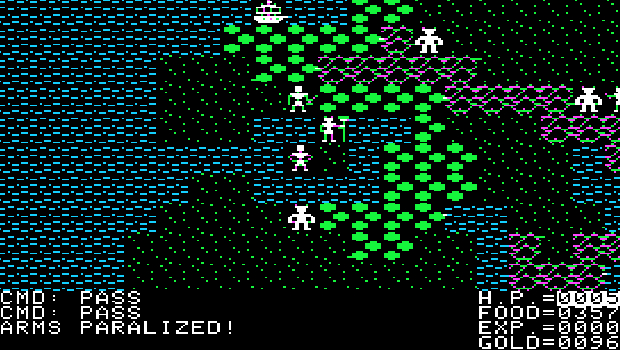
Ultima, Wizardry, and the genres maturation
RPGs continued to naturally expand and improve as the years passed, but the next big step in the genre came through a couple of commercially and critically successful series: Ultima and Wizardry. One of the most essential franchises in video game history, developer Richard Garriotts Ultima largely shaped RPGs as we know them today. The list of innovations it made and conventions it popularized are worth an article themselves, but suffice it to say that things like party-based combat, expansive, deeply-written narratives, tile-based graphics, and many, many others can all be traced back to Ultima in some way.
Ultima proved wildly popular (with Ultima III particularly worthy of praise), launching a series that would spawn nine core titles over the course of 20 years, from 1981 to 1999. While that success is very much deserved, its worth noting that it has somewhat overshadowed another landmark RPG series, Wizardry. That franchise was arguably just as important, as its first-person perspective, parties with classes, morality systems, ability to import characters, and absurd difficulty--again, among many other innovations--would also leave a lasting impression on countless future RPGs.
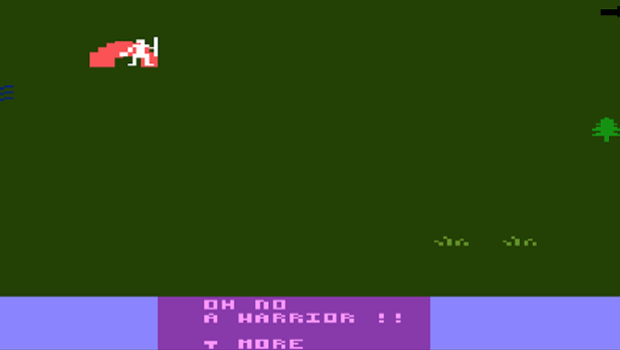
Console RPGs begin to emerge
Just about all of the RPGs weve dealt with so far have been from the West and primarily for computers, but that doesnt mean that they were the only kind being produced at the time. Console role-players can be traced back to the likes of the 1982 Atari 2600 title, Dragonstomper. That game had a generic youre the knight, kill the dragon plot, but sported many traditional RPG elements like loot, magic items, shops, and even a few clever puzzles.
Over in Japan, Nintendo Famicon owners were treated to a 1985 port of Bokosuka Wars, which succeeded both commercially and as a landmark of its time. It was one of the first tactical RPGs, as it blended real-time strategy elements with the expected role-playing ones. Players would have to take command of their own army, keeping its leader alive, while leveling up and battling in real-time along the way. Sounds simple now, but this was definitely something different for consoles in the mid-80s.
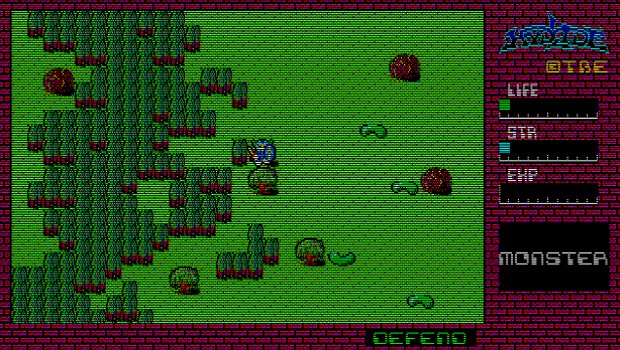
Dragon Slayer and Hydlide lay the foundation for JRPGs
Just as Ultima and Wizardry can be called the prime shapers of the Western computer role-playing game, a pair of series from the emerging mid-'80s RPG scene can be said to have done the same in Japan. First is 1984s Dragon Slayer, which many consider to be the first true action-RPG. It blended real-time hack-and-slash combat with RPG-style character stats and leveling, let players level up some of their items, and even had a basic Karma system. It was quite the success over in Japan, and quickly became known for making major design shakeups with each installment, a trait that series like Final Fantasy have popularized today.
The second of these JRPG monuments was Hydlide, another action-RPG that introduced regenerating health, a quick save feature, and the ability to alternate between attacking and defensive positions. It also spawned a handful of follow-ups, which, like Dragon Slayer, helped steer the JRPG market towards what it was to become.
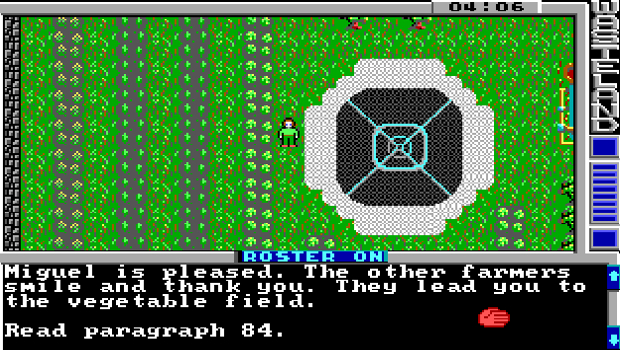
Western RPGs start to hit their stride
From around this point in the mid-'80s to the early '90s, the role-playing genre really started to come into its own. An overwhelming amount of quality RPGs came out of the woodwork from both Western and Eastern markets, and on both PCs and consoles. In the West, games like Might and Magic, The Bards Tale, Wasteland, the early MMO Neverwinter Nights, and Dungeon Master--a smash hit for the Atari ST that sported a first-person view not unlike those of later Elder Scrolls games--all improved and innovated upon the foundations set by Ultima and other earlier classics.
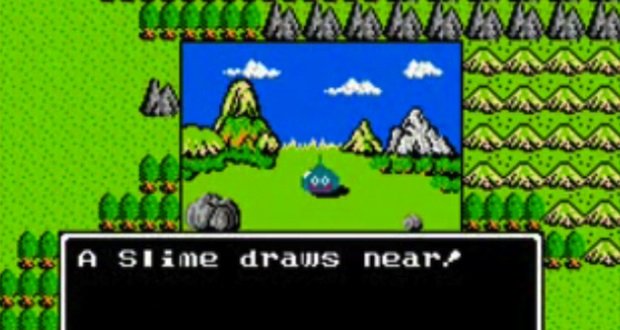
Eastern RPGs start to hit their stride too
As for the East, they certainly churned out more than a fair share of RPGs for the PC (Dragon Slayer, Hydlide, Ys, Hideo Kojimas Snatcher, etc.), but consoles largely reigned supreme. The number of future classic franchises that began at this time is staggering--more on that in a second--but any discussion of this segment of the genre has to begin and end with Dragon Quest.
Beginning in 1985, Dragon Quest (or Dragon Warrior in North America) soon became the standard bearer for all console RPGs. Like most role-players, the franchise was inspired by Wizardry and Ultima, but its fast-paced, more streamlined take on those games conventions endeared it to a group of people eager to play RPGs but were turned off by the D&D-level dedication usually required to play one. It was unabashedly story and character-based, with romantic elements and quests that often intertwined with other subquests. It played well, looked great, and was simple to understand, making it a perfect point of entry for newbie players--and a wonderful series in general. A decade and a half later, Dragon Quest is still immensely popular today.
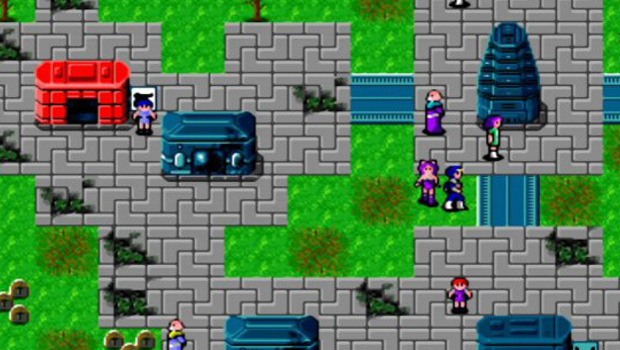
JRPGs explode, WRPGs fizzle
After Dragon Quest succeeded in bringing RPGs to a wider audience, the Japanese role-playing market, for lack of a better phrase, went absolutely bananas. Now deemed a golden age of RPGs, the late '80s to mid-'90s saw the beginnings of soon-to-be classics like The Legend of Zelda, Phantasy Star, Castlevania, Final Fantasy, Sweet Home--which, despite being an RPG, helped to define later survival horror titles--the Mana series, Chrono Trigger, and the Megami Tensai series--which was one of the first set of video game RPGs to almost completely drop the high fantasy aesthetic for a sci-fi one. Needless to say, these games, among others, all helped to turn a whole generation of gamers into a new kind of RPG fanatic.
The West, meanwhile, hit something of a lull in the mid-'90s. PC-based RPGs had grown increasingly repetitive, and developers found themselves unable to keep up with the stream of PC hardware upgrades of the period. Players became bored, eventually moving to the then-improving genres of first-person shooters, action games, and real-time strategies. And since JRPGs were only getting better--and more accessible--the legacies of those classic PC-based RPGs of yesteryear appeared to be coming to an end.
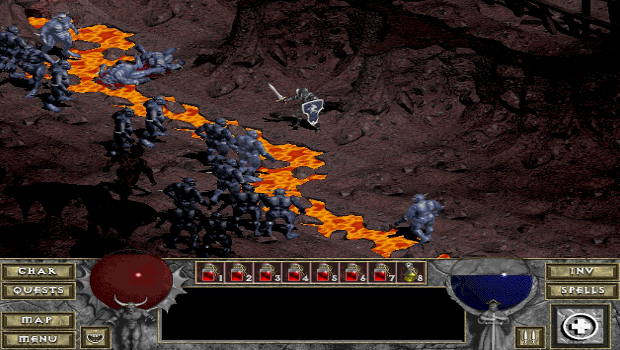
Diablo helps wake up WRPGs
Western-based RPGs began to get their collective act together shortly thereafter, though, after a handful of new franchises dared to do things a little differently. Titles like Baldurs Gate, The Elder Scrolls, Planescape: Torment, and Fallout (and even later, Deus Ex) may have looked and played quite differently than Dragon Quest, but they were all emblematic of the lesson the classic JRPG series had learned years before. Which is to say, theright mix of accessibility and cinematics would ultimately lead to success. And succeed those titles did, as their improved focus on strong writing, darker aesthetics, and more complete game worlds helped revive a stagnant PC RPG-gaming community.
But if we had to deem one game the most influential of this eras bunch, it would have to be Diablo. In essence, it took many of its cues straight from Rogue--from its procedurally generated content to its being a dark dungeon crawler. Beyond those core mechanics, though, Diablo became known for its impressive graphics, faster-paced hack-and-slash combat, and, perhaps most significantly, its online multiplayer features through Battle.net or a LAN. Its replay value was through the roof for its time, and many later titles would aptly come to be known as Diablo clones for the way they attempted to replicate its importance.
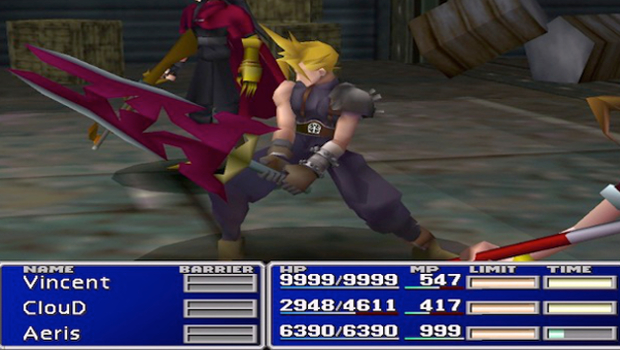
Final Fantasy VII and expanding the scope
While Diablo and company were busy bringing computer role-players back from the dead, their console brethren were just starting to reap the benefits of some improved technology. The Nintendo 64 was still selling cartridges, yes, but both the Sony PlayStation and Sega Saturn had moved over to CD-ROMs, in the process opening up a whole wealth of new possibilities for a genre that had long relied on the hugeness of its titles.
It goes without saying for most gamers today, but one of the biggest beneficiaries of this new hardware was Final Fantasy VII. The FF franchise had long been successful by 1997, meaning that there was a substantially large budget poured into its seventh installment when it went into development. Few would say that all that cash wasnt worth it now, however, as FF VIIs CGI cutscenes, massive story, enormous world, and high-quality production values just wouldnt have been as effective without the power of the PlayStation. Oh yeah, it was a pretty good game too, directing the gaze of a new generation towards a new style of RPG. You don't need to be told that, though.
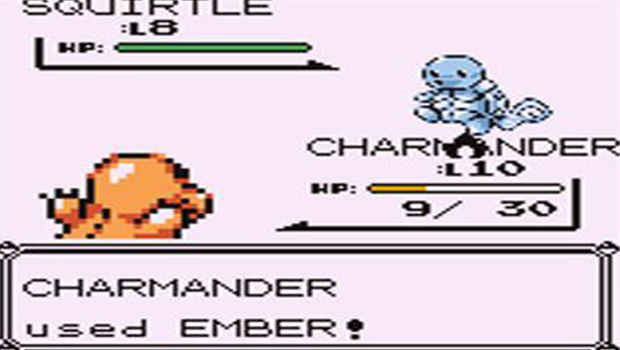
Pokmon gets everyone to catch them all
As previously noted, this is a fairly abridged version of a history that could have encyclopedias written about it, so were bound to leave out a classic or two (or ten). One franchise we totally could not forgive ourselves for forgetting, though, is Pokmon.
Beginning with 1998s Pokmon Red and Blue for the Game Boy, the seemingly countless number of Pokmon games have gone on to sell over 200 million copies in total, making it the most popular RPG series ever created. Almost all of its titles follow the same basic, user-friendly formula--find the lovable creatures, catch them all, and then become a Pokmon Master. It doesnt take a genius to figure out Pokmon, but then again its simplicity and cheerfulness are the sources of its charm. Put all this on handhelds--which have been a wonderful source of quality RPGs over the years--and, well, the rest is history.
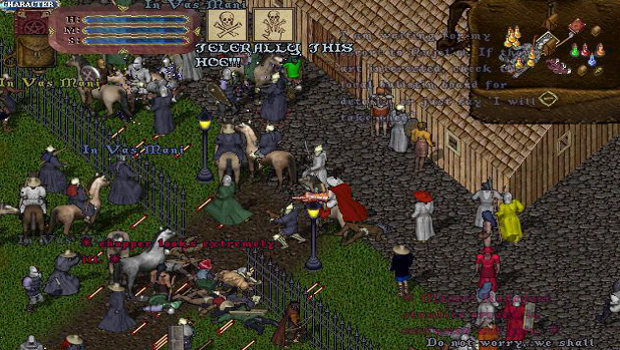
MMORPGs skyrocket to stardom
RPGs had been tinkering on and off with multiplayer by the time the mid-to-late '90s came around. Early mainframe computer RPGs had experimented with multiple users, including initial massively multiplayer games like Neverwinter Nights and The Shadow of Yserbius. Secret of Mana proved co-op components were more than functional in single-player games, and, of course, Diablos Battle.net service was immensely popular too. So, when Ultima Online arrived in 1997 and solidified MMORPGs as a force to be reckoned with, nobody could really say that they didnt see it coming.
Yes, Ultima had done it again. It certainly wasnt the first MMORPG, and it certainly wasnt without its flaws, but Ultima Onlines deep PvP system, massive community, and successful adaptation of its classic single-player counterpart to an MMO style set the stage for future blockbusters like EverQuest, EVE Online, Final Fantasy XI, and World of Warcraft. Of course, those games (and others) contributed (and continue to contribute) to the genre today, showing that millions upon millions of players are willing to throw themselves into virtual worlds when given an appealing opportunity.
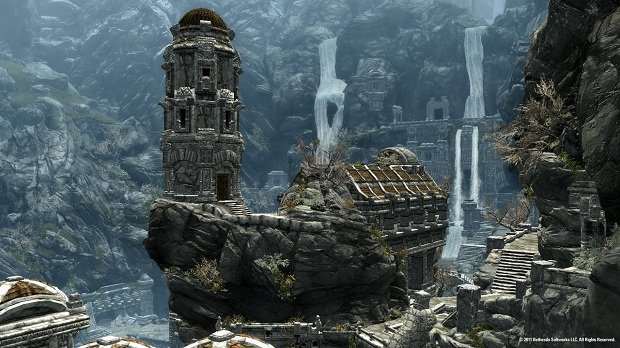
Modern RPGs crank everything up to 11
Modern RPGs have continued to have their fair share of quality, successful installments, but the common trend among the most popular of recent role-players seems to be their expanded well, everything. Games like Mass Effect ratchet up the drama and action elements, creating blockbuster-like experiences that both RPG traditionalists and casual users can enjoy. Games like The Elder Scrolls V: Skyrim take the idea of open-world gameplay and absolutely blow it out of proportion in a good way. And games like Dark Souls morph the concept of a Wizardry-style skill-based challenge into something more masochistically difficult than ever before.
RPGs feel bigger in every way these days, which is something of a far cry from their humble, mainframe computer roots. Many purists may claim that popular RPGs are becoming too streamlined for their own good, but, at the same time, its difficult to argue with just how successful some of these series have been. Old stalwarts like Final Fantasy, Dragon Quest, and Pokmon continue to churn out new sequels, while new IPs like Xenoblade Chronicles, The Witcher, and Fable have made their mark as well. The lines between JRPGs and WRPGs have continued to become blurred too, sometimes creating a sense of uniformity, but other times allowing for experimentation outside of those usual confinements. But no matter how you see it, its hard to deny that RPGs are still far from being out of HP.
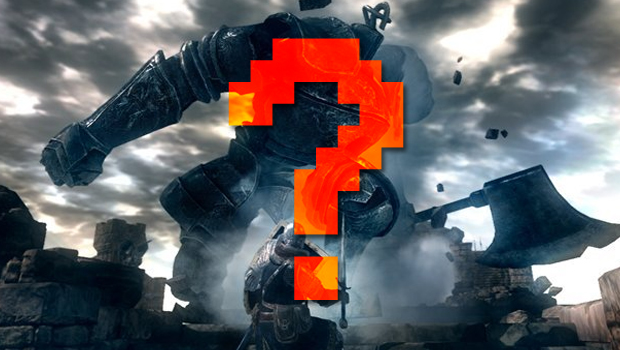
Choose your party
For as much ground as we just covered, thats still only a fraction of RPG's rich and long-lasting history. So did we miss any of your favorites? Let us know in the comments.
And if youre itching for more recent RPG-related content, check out our history of Mario RPGs and our Great Japanese RPG vs. Western RPG Debate.


